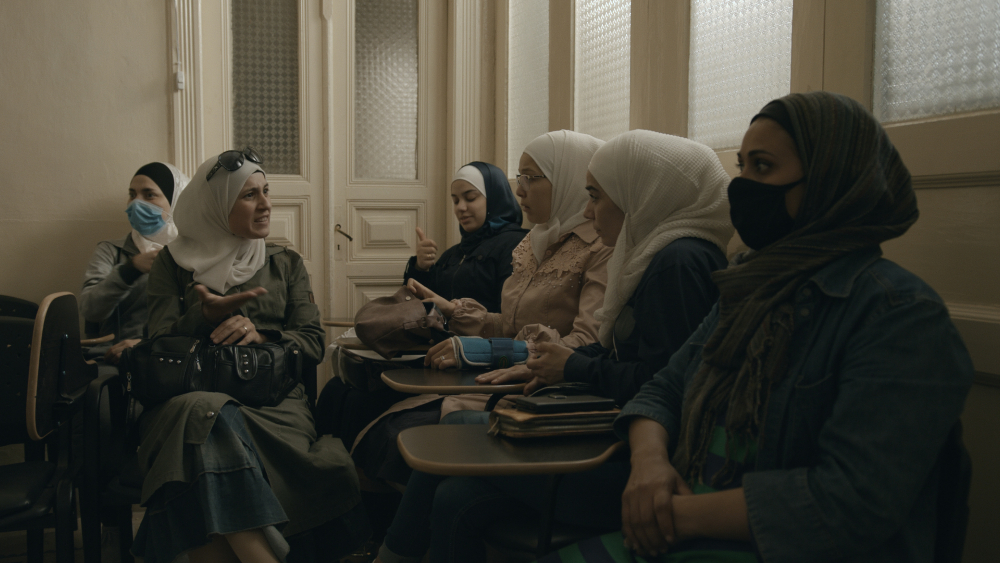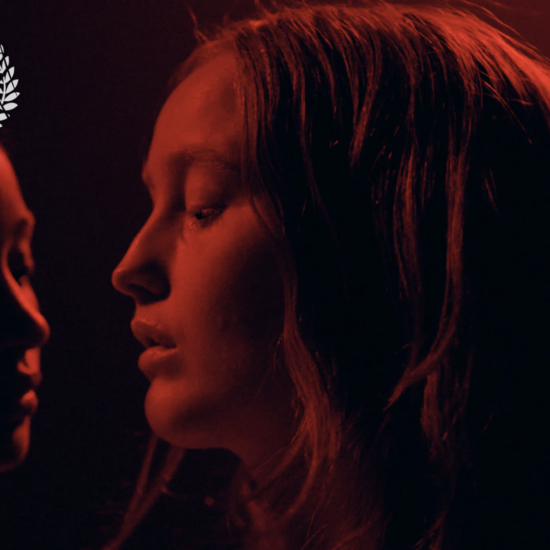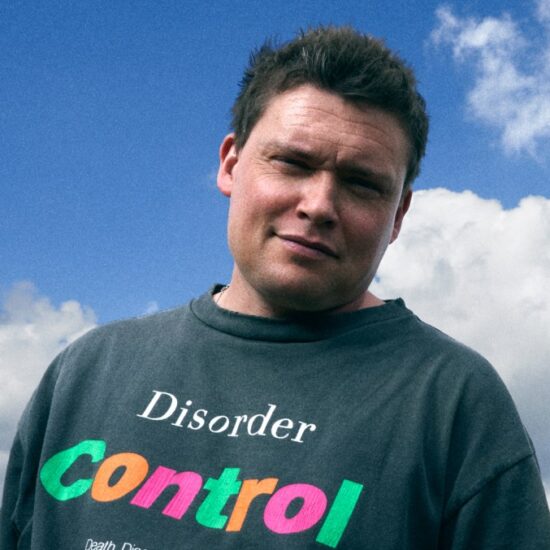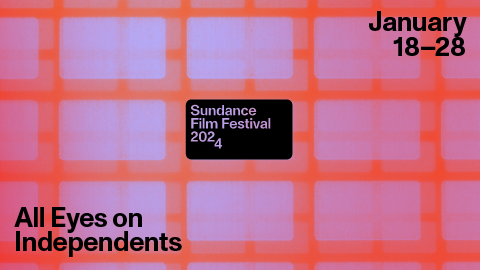
Though the world watched — often in silence — as a decade-long civil war tore Syria apart, exiled filmmakers Talal Derki (“Of Fathers and Sons”) and Heba Khaled say an equally brutal but less visible war is still raging.
In “Under the Sky of Damascus,” which premieres Feb. 20 in the Panorama strand of the Berlin Film Festival, the duo shifts the lens to the silenced majority of Syrian women who routinely face sexual harassment, violence and abuse in their patriarchal society.
The film follows a tight-knit group of young Syrian women who embark upon on a radical project to produce a play that lays bare the culture of misogyny and sexual abuse that has blighted the lives of females in their country for generations.
Fanning out across the war-weary Syrian capital, they record testimonies from actresses to factory workers to stay-at-home mothers, revealing how women from across Syrian society share the same harrowing tales of abuse, blackmail and even imprisonment at the hands of men who wield unchecked power in the rubble of post-war Syria.
“I myself am a survivor,” said first-time director Khaled, who was raised in a deeply conservative Muslim family in Damascus and left Syria in 2014. “We decided to tell the story of women because they were absent in most of the Syrian documentary films [since the start of the war]. We had the will for a long time, and now was the time to do it.”
It was by no means an easy feat to pull off. Derki, whose previous, critically acclaimed documentaries explored Syria’s brutal civil war through the stories of men fighting on the frontlines, has been blacklisted by the regime of the country’s strongman president Bashar al-Assad; both he and Khaled, his wife, who met as journalists covering the early years of the conflict, said returning to Syria would be a virtual death sentence.
Instead, they enlisted the help of Damascus-based co-director Ali Wajeeh, who followed the five actresses as they recorded the heartrending accounts of women who suffered abuse at the hands of their husbands, fathers, brothers, employers and other men — a situation that has grown even more critical in the aftermath of the war, said Derki.
“Under the Sky of Damascus” is produced by Real Lava and Jouzour in co-production with Rustic Canyon Pictures and Sama Art in association with Impact Partners and Daraj. The film received a post-production grant from the Doha Film Institute and a grant from the Catapult Film Fund. It was also supported by International Media Support (IMS), Kong Gulerod Film, Rustic Canyon Pictures, Siggi Production and Sama Art.
The follow-up to Derki’s acclaimed “Return to Homs” and Oscar-nominated “Of Fathers and Sons” is in some ways a response to those films. The directors decided that they needed to find new ways to shed light on life in post-conflict Syria, choosing to center the documentary on the women who are now shouldering the burden of rebuilding the country, even though power remains frustratingly out of reach.
“The minority of men who have control — they are just like 25% of the whole society — they are still manipulating and using their power, their masculinity, in a country like Syria,” said Derki. Added Khaled, “Women don’t have a voice.”
Many find that voice in the film. “Under the Sky of Damascus” is a testament to the courage of the women appearing on camera — at tremendous personal risk — to share their stories of abuse. The actresses looking to bring those stories to the stage also do so knowing that the personal and professional consequences could be catastrophic.
The film takes a shocking twist when the women realize that the issues they’re exploring hit much closer to home than it appears, nearly derailing the project and forcing them to confront — in painfully intimate terms — the very exploitation they’ve been documenting.
The actresses and filmmakers realized, however, that they had to see the project through to the end. “I hope that women watch this film and take the decision to change their life,” said Khaled. “I fought and struggled for that. And I won’t give up. It’s a long journey, but it will happen in the end.”













